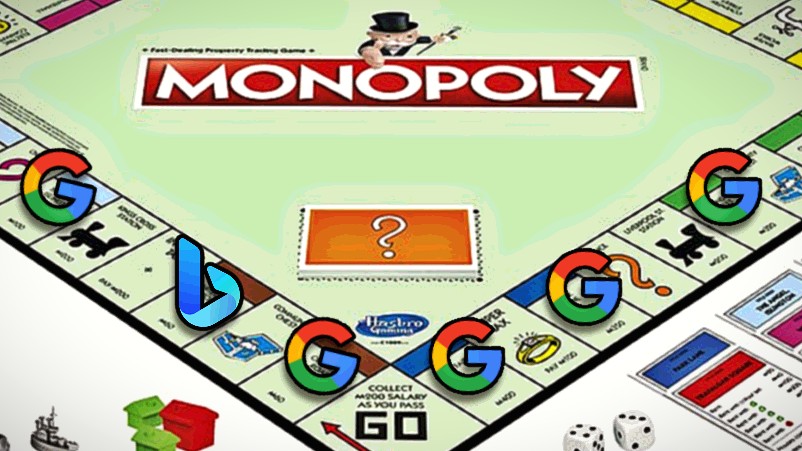Search monopoly: Google ruled a ‘monopolist’, admits revenues will be decimated if $20bn distribution deal with Apple and others is dissolved in US antitrust case; AI strategy at risk

The stakes for Alphabet after losing its antitrust case this week are huge. If the judge in the case unplugs the distribution deal between Google and Apple that sees Apple clip the ticket on 10 billion searches a week across Safari - and Chrome searches in iPhones - the search giant's revenues on mobile could be crippled. It could also lose access to the very data it needs to train its AI models that will fuel the next generation of search. A Forrester analyst says we could see Google divest its search business. Apple also stands to lose tens of billions in revenues. According to the US Federal Court ruling in the case brought by the US Department of Justice, at one point the search deal accounted for 17.5 per cent of Apple's operating profits although it can replace the losses by launching its own search business, something it's toyed with in the past.
- Google faces dramatic losses in revenues and access to the huge lake of data it needs to train its AI if the judge in the antitrust case it lost this week decides to kill its distribution deal with Apple, worth tens of billions annually. According to evidence presented at the trial, two-thirds of that revenue would be lost.
- That distribution deal known as the Google-Apple Internet Services Agreement (ISA), along with similar deals with manufacturers in the Android ecosystem is at the heart of the ruling this week that Google is a monopolist and that it abused its monopoly power.
- That monopoly stifled innovation and competition and the specific harm to its customers is that Google gouged the pricing in search text ads in a way it simply couldn't in other search markets - for instance where it competes with Amazon.
- According to the court, in 2021, Google paid out a total of $26.3 billion in revenue share under these contracts.
- The year before, the deal was so lucrative to Apple that it represented 17.5 per cent of the company's operating profit.
- In 2022 Apple is believed to have received circa $20b from Google, about 80 per cent via its Safari browser. Apple also gets paid for searches in Chrome, according to the evidence.
- Between Siri, Spotlight, and Safari, Apple generates about 10 billion user queries per week
- Google has made clear it intends to appeal the ruling.
- The next step is that the Federal Court judge will hold a hearing to determine how to fix the market of Google's monopoly and what remedial steps should be taken.
- The impact of the potential remedies are so significant that a Forrester analyst suggested to Mi3 that Google could divest its search business.
- The case won't be Google's only turn in the dock this year. The DOJ is targeting it again with regard to its power in the adtech ecosystem, with the goal reportedly of carving out its adtech business. That case is expected to begin in Q3.
- The US government has been much more aggressive in recent years as it seeks to rein in the digital giants who have amassed huge wealth and market power since the last great antitrust case - against Microsoft during the internet's nascent days of the late 1990s.
- The DOJ is suing Apple over anti-competitive behaviour on the iPhone, while the FTC is pursuing both Meta and Amazon for anti-competitive conduct.
Google has long recognized that if Apple were to develop and deploy its own search engine as the default GSE in Safari, it would come at a great cost to Google. For example, Google projected that without ISA, it would lose around 65% of its revenue, even assuming that it could retain some users without the Safari default.
At the heart of the ruling this week that Google is a search monopolist and that it illegally abused its monopoly power are two issues - distribution and price.
US Federal Court Judge Amit Metha ruled that through the deals struck with firms like Apple, Samsung, and others Google ensured it was the default search option on their smartphone. It essentially welded shut the drawbridge over the competitive moat, making it almost impossible for rivals to build scale.
The court determined that in the US over 65 per cent of searches on all Apple devices go through the Safari default, while that number rose to 80 per cent for Android devices. The judge noted that Google's distribution agreements with browser developers and device manufacturers (such as Apple and Android OEMs) effectively secured Google's position as the default search engine across major platforms. This exclusivity has foreclosed approximately 50 per cent of the general search services market, significantly limiting competition.
Mehta also highlighted that Google's exclusive agreements prevented rivals from achieving the scale needed to compete effectively, maintaining Google's market power. Furthermore, Google was unable to demonstrate procompetitive justifications for the exclusivity agreements, which further tipped the judge’s opinion against it.
How did it seal the gate shut? With molten gold, it seems.
According to the court ruling, “In 2021, Google paid out a total of $26.3 billion in revenue share under these contracts, an expense listed in its financial statements as “traffic acquisition costs,” or TAC. TAC was Google's greatest expense in 2021, almost four times more than all other search-related costs combined.”
Of that $26.3 billion, Apple likely received the lion’s share.
Even more dramatic is the court’s assessment of the impact on Google’s revenues without the deal. “It would lose around 65% of its revenue, even assuming that it could retain some users without the Safari default.”
And it would lose something just as valuable – access to data to train its AI models, a point not lost on Microsoft CEO Satya Nadella last year when he testified in the trial.
According to Monday’s ruling, “In 2022, Google's revenue share payment to Apple was an estimated $20 billion (worldwide queries). This is nearly double the payment made in 2020, which was then equivalent to 17.5 per cent of Apple's operating profit. Google's 2022 payment under the ISA is more than all of its other revenue share payments combined and is approximately double that combined value.”
The ruling also reveals that Google's deal with Apple gives Apple “revenue share on Chrome queries, notwithstanding the fact that Apple does not preload Chrome onto its devices.”
Google controls about 90 per cent of the online search market, and 95 per cent on smartphones.
Given that Google advertising represented more than three-quarters of Alphabet’s total sales last year, the stakes couldn’t be higher (unless you add in the risk of the firm having its adtech business carved out during its next stint in the dock – likely in September).
The sheer scale of those deals and the terms effectively create a massive barrier to entry for innovators and maintain its monopoly.
Price gouging
The court found that Google abused its monopoly position by gouging customers of its text ads with price increases – that’s about 92 cent of the search ads it sells.
As Ari Paparo, editor of The Monopoly Report out of Marketecture noted, those price rises were the smoking gun.
To understand why, it's necessary to drill into the ruling
The court found that while Google had a monopoly in Search and in search text ads, it also found that Google does not have a monopoly in search advertising. The ruling goes into considerable length to parse the two. But basically, the ruling recognised the competitive nature of product listing ads where Amazon in particular has carved out a huge chunk of change.
Google was able to ratchet up the price of search text ads at its discretion due to its monopoly power, but it was unable to do the same in other search ad categories where it faced a serious competitor.
“The monopolisation was in controlling the access to distribution of search engines and thwarting rivals. But what Google did with that monopoly was it raised prices for advertisers. And what that means is there's a tax. Google is a $2 trillion company. The reason it is so valuable is because it effectively can tax every company in the economy for marketing. So if you need to get your information out, you have to give a vig to Google
Supracompetitive prices
According to the court’s published opinion after the ruling, Google charged supracompetitive prices for general search text ads, indicating its ability to raise prices above competitive levels without losing significant business to rivals. It referred to evidence showing that Google could increase text ad prices by 5% to 15% at a time without a significant shift in advertiser spending to competitors.”
Shortly after the ruling came down, Matt Stoller the director of research for the American Economic Liberties Project, a bipartisan think tank, told the Democracy Now podcast, “That was the specific harm.”
“The monopolisation was in controlling the access to distribution of search engines and thwarting rivals. But what Google did with that monopoly was it raised prices for advertisers. And what that means is there's a tax. Google is a $2 trillion company. The reason it is so valuable is because it effectively can tax every company in the economy for marketing. So if you need to get your information out, you have to give a vig to Google.”
From ancient grudge…
The current US administration has demonstrated a healthy appetite to bring Big Tech to heal, part of a wider global trend by governments and regulators to impose guardrails on an industry that has largely had a free hand for 20 years.
Indeed, you have to go back to the US government’s actions against Microsoft at the denouement of the browser wars against Netscape in the 1990s to find comparable legal intervention in the US. (The Europeans have been much more bolshie.)
After years of litigation Microsoft and the government settled.
Microsoft avoided a breakup which was considered a real possibility for a while. However, the operating rules that were imposed upon the company seriously crimped its ability to innovate, according to insiders who described it at the time as the death of a thousand cuts.
By the time the market moved from desktop to mobile, Microsoft demonstrated all the agility of a lazy incumbent, trading off its reputation, and long ago gone from muscle to fat off the proceed of what it believed to be its competitive moat – a near monopoly on desktops. Google and Apple didn’t break that monopoly, they just moved the operating system – and several billion consumers – onto smartphones. It took former Microsoft CEO Steve Ballmer being blasted out of the top job, and eventually, Satya Nadella replacing him for the company to get its mojo back.
Break to new mutiny
There are four more Big Tech antitrust and market abuse cases currently on the boil. How they fall out will help us understand how the digital business battlefield will be reshaped for the decade ahead.
Google’s search monopoly ruling may be just the first domino to fall. Google will appeal. In the meantime, we will get a sense of the stakes when the judge lays out how he intends to “cure” monopolised search markets.
The second lawsuit also involving Google will look at its control of the ad tech ecosystem – with the DOJ looking to carve out its ad tech business: “Competition in the adtech space is broken, for reasons that were neither accidental nor inevitable. One industry behemoth, Google, has corrupted legitimate competition in the ad tech industry by engaging in a systematic campaign to seize control of the wide swath of high-tech tools used by publishers, advertisers, and brokers, to facilitate digital advertising. Having inserted itself into all aspects of the digital advertising marketplace, Google has used anticompetitive, exclusionary, and unlawful means to eliminate or severely diminish any threat to its dominance over digital advertising technologies.”
The DOJ is suing Apple over iPhone rules that lock competitors out and customers in. It says Apple would meet competitive threats by imposing a series of shapeshifting rules and restrictions in its App Store guidelines and developer agreements that would allow Apple to extract higher fees, thwart innovation, offer a less secure or degraded user experience, and throttle competitive alternatives.
Meanwhile the FTC (Federal Trade Commission) sued Amazon last year over allegations that Amazon blocks competition: Amazon violates the law not because it is big, but because it engages in a course of exclusionary conduct that prevents current competitors from growing and new competitors from emerging. By stifling competition on price, product selection, and quality, and by preventing its current or future rivals from attracting a critical mass of shoppers and sellers, Amazon ensures that no current or future rival can threaten its dominance. Amazon’s far-reaching schemes impact hundreds of billions of dollars in retail sales every year, touch hundreds of thousands of products sold by businesses big and small, and affect over a hundred million shoppers.
Finally, the FTC is also fighting Meta over what it sees as a social media monopoly due to its ownership of Facebook, Instagram, and Whatsapp – a trifecta that Mark Zuckerberg once famously called the dial tone of the internet. “What we want to create is like a dial tone for the internet - like a universal emergency number - basic services that we think everyone should have including messaging, weather, search provided for free with the ability to upgrade to use higher bandwidth services.”
According to the FTC Facebook “… is illegally maintaining its personal social networking monopoly through a years-long course of anticompetitive conduct. The complaint alleges that Facebook has engaged in a systematic strategy—including its 2012 acquisition of up-and-coming rival Instagram, its 2014 acquisition of the mobile messaging app WhatsApp, and the imposition of anticompetitive conditions on software developers—to eliminate threats to its monopoly.”
Look on the bright side
For now, at least publicly, Google owner Alphabet is not taking a backward step.
According to Kent Walker, President, Global Affairs, Google, “This decision recognises that Google offers the best search engine, but concludes that we shouldn’t be allowed to make it easily available.”
“We appreciate the Court’s finding that Google is ‘the industry’s highest quality search engine, which has earned Google the trust of hundreds of millions of daily users,’ that Google ‘has long been the best search engine, particularly on mobile devices,’ ‘has continued to innovate in search’ and that ‘Apple and Mozilla occasionally assess Google’s search quality relative to its rivals and find Google’s to be superior.’
“Given this, and that people are increasingly looking for information in more and more ways, we plan to appeal. As this process continues, we will remain focused on making products that people find helpful and easy to use,” he said.
It could prompt regulators in APAC to scrutinise Google’s practices more closely. Countries like India and Australia have already been proactive in investigating Google’s business practices for potential antitrust violations.
Goggle sans Search
The remedies the court may take to cure the market of Google's monopoly are so significant that Nikhil Lai, Forrester senior analyst told Mi3, "Google may divest its search business. We’ll know more after 6th September, when Judge Mehta begins a hearing to discuss remedies for Google’s abuse of its monopoly.
"While this is caught in appeals, which will likely reach the Supreme Court, it adds momentum to antitrust suits against Amazon, Apple, and Meta, threatening a dramatic restructuring of Big Tech reminiscent of AT&T’s breakup,” Lai said.
While the ruling is primarily focused on the US, there are potential APAC implications Lai's colleague, Xiaofeng Wang, Forrester principal analyst said, "It could prompt regulators in APAC to scrutinize Google’s practices more closely. Countries like India and Australia have already been proactive in investigating Google’s business practices for potential antitrust violations. This ruling could bolster those efforts and potentially lead to stricter regulations or new legal challenges against Google in the region.”
She noted instances where Google has come to the attention of regulators in the region, or even fallen afoul of them. For instance, she said that in 2022, the Competition Commission of India (CCI ) fined Google ₹936.44 crore (approximately $113 million) for anti-competitive practices related to its Android operating system and its dominance in the search market. "In addition to the fine, the CCI issued a cease-and-desist order, directing Google to stop engaging in these anti-competitive practices and to allow third-party payment services on its platform.
Likewise, she flagged how in 2021, the Australian Competition and Consumer Commission (ACCC) raised concerns about Google’s dominance in the digital advertising market and its impact on competition.
“Additionally, changes in Google’s business practices resulting from the U.S. ruling could indirectly affect users and businesses in APAC. For example, if Google is required to alter its default search engine agreements or change its advertising practices, these changes could be implemented globally, impacting how users in APAC interact with Google’s services.”


